Apparently yoga can be the key to a pain-free period - here's how, plus how it helped me
Yogi and nutritionist Le'Nise Brothers shares the yoga flow you need to know.
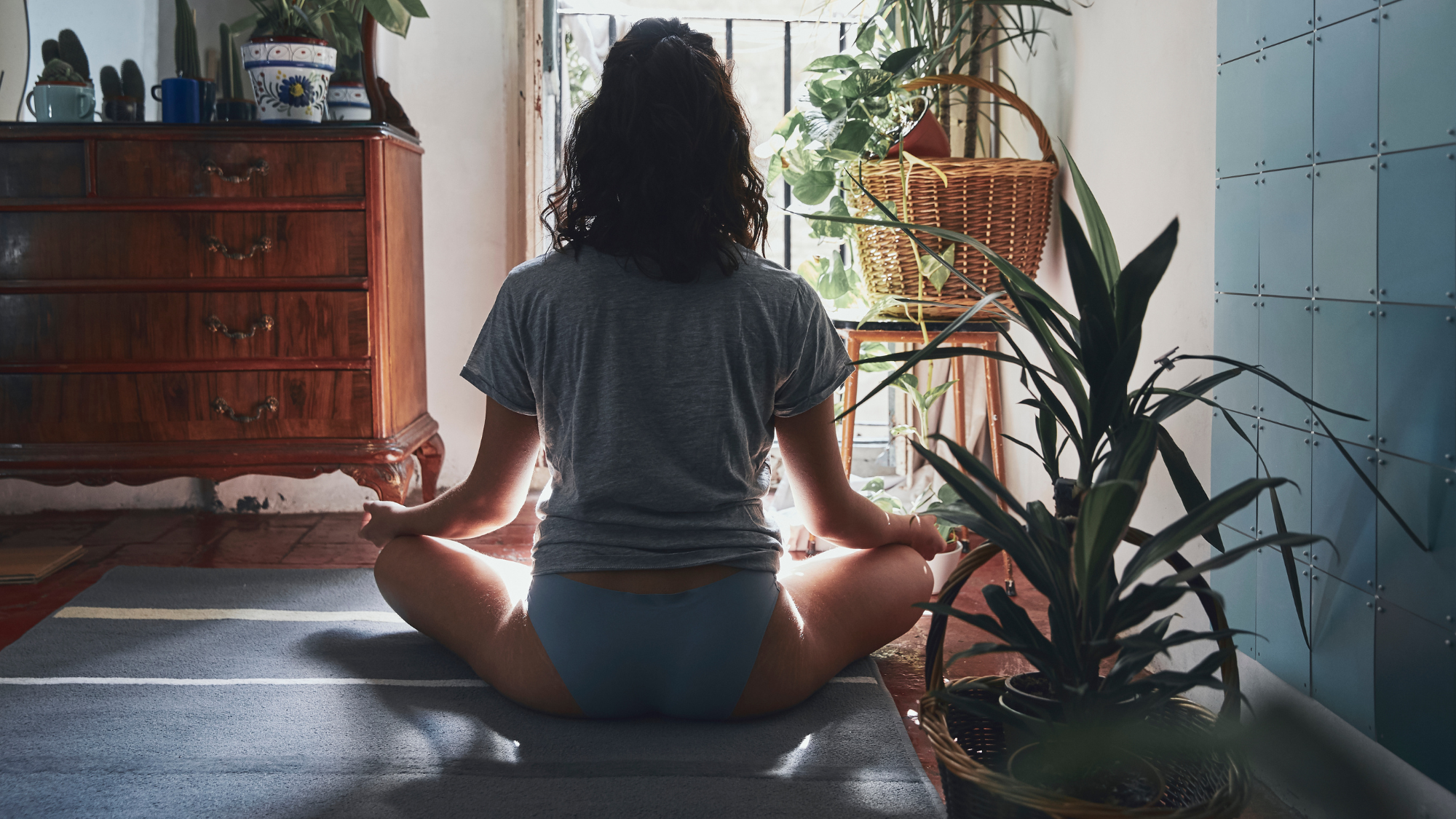
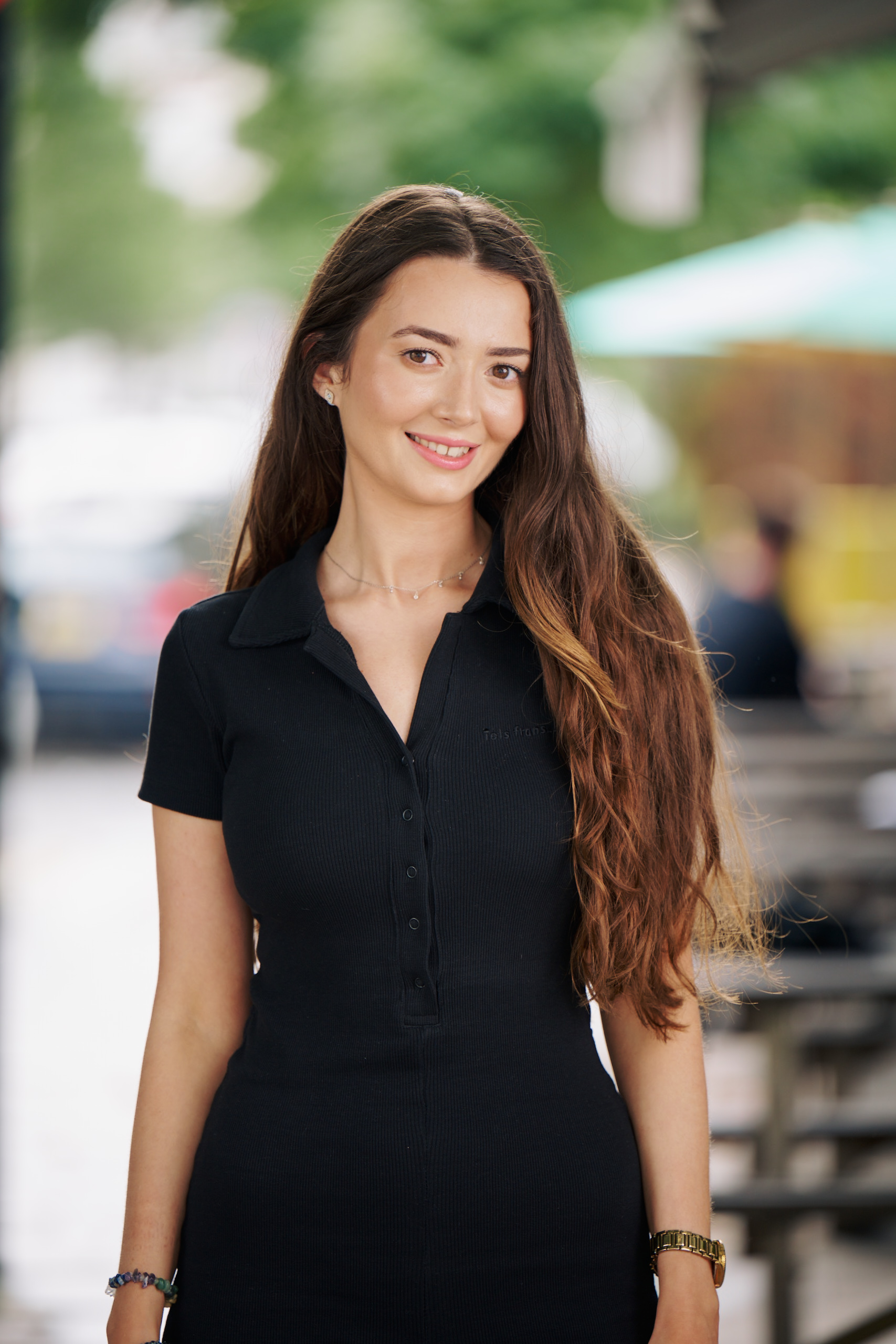
Yogi and nutritionist Le'Nise Brothers shares the yoga flow you need to know.
If, every month, the thought of your period arriving fills you with dread - stomach cramps, back pain and fatigue - then welcome to the club. According to YouGov research, 91% of women across the country have suffered from period pain. While it can be comforting to know that you're not alone, women shouldn't have to live with debilitating symptoms - which is where yoga for period pain comes in.
You'll likely have heard of yoga - an ancient practice that combines physical movement, breathwork and meditation. But did you know yoga promises to be able to help your hormones, too?
The new Women's Health Strategy survey found that most women had their symptoms immediately dismissed by doctors, despite the NHS website states that period pain is a common part of your menstrual cycle. But think about it: two or three days of pain around your period adds up to 24 to 36 days of pain a year. That's a lot.
For way too long now, women’s pain has been ignored or simply defined as “hysterical”. That's why it's time to change our expectations of a "normal" period and try to eliminate pain from the narrative.
Yoga during your period may sound like the last thing you want to do - often, you just want to curl up in a ball, right? But yoga for better periods is all about cycle care and preparing your body for a pain-free period throughout every phase of your cycle.
Keen to hear more? We've spoken to nutritionist and yoga teacher, Le’Nise Brothers, author of You Can Have A Better Period, to explain exactly how yoga for period pain works. Whether you're trying yoga for beginners or use yoga poses for when you feel achy and stiff, we've got a flow below that you'll wish you'd known about sooner.
Yoga for period: your need-to-knows
- The combination of movement, breathwork and meditation used in yoga can help to alleviate period pain.
- It also supports blood flow, which is thought to help to ease cramps and pain.
- It can be done at any time throughout the month.
- Yoga has been found to reduce chronic inflammation and work on the autonomic nervous system.
- That said - it's not a fix-all. Understanding your cycle is key

How does yoga for period pain work?
If you're one of the many women who often experience period pain, yoga might sound too easy to solve all your period-related problems, right?
Marie Claire Newsletter
Celebrity news, beauty, fashion advice, and fascinating features, delivered straight to your inbox!
But Le'Nise is here to put all those doubts to bed and explain the science behind yoga for period pain. “As a whole body practice, yoga is a powerful way to reduce the chronic inflammation that increases prostaglandins, the hormone-like compounds that in excess can increase pain," she explains.
Plus, research has found that another of the benefits of yoga is that it improves your autonomic nervous system, increasing the body’s natural painkillers and reducing pain responses. Neat, right?
Let's break it down further. “Firstly, there is the physical practice of yoga, asana. Moving our bodies through a gentle series of poses can help to stretch tight muscles, support blood flow around the pelvis and open areas that are stiff from lack of movement," she explains.
And this matters because? "Many of us with painful periods might stay still, holding in one place, resulting in something called muscle guarding, where the muscles tighten up as a means of reducing the pain," she shares. "This creates a cycle of stiffness and tightness that an asana practice can help break."
Yoga can feel daunting to start with, especially if you haven't tried it before. But know this: you don't need to be super flexible or a yogi expert as the practice is all about you, and making yourself feel good. (Read our guide to yoga poses for beginners, here).
The second aspect of yoga for period pain? Breath control, otherwise known as pranayama.
"Research shows that deep, yogic breathing can calm our nervous system, shifting us to a more relaxed state of mind," explains the expert. "This is helpful when our periods are painful because a deeper breath can reduce muscle guarding and pain, especially in the pelvis, lower back, and hips."
Never understood why "inhale, exhale" is so important in a yoga flow? "Deep yogic breathing also helps us relax tight muscles and lowers cortisol (our primary stress hormone) levels, reducing inflammation and prostaglandin levels," she goes on.
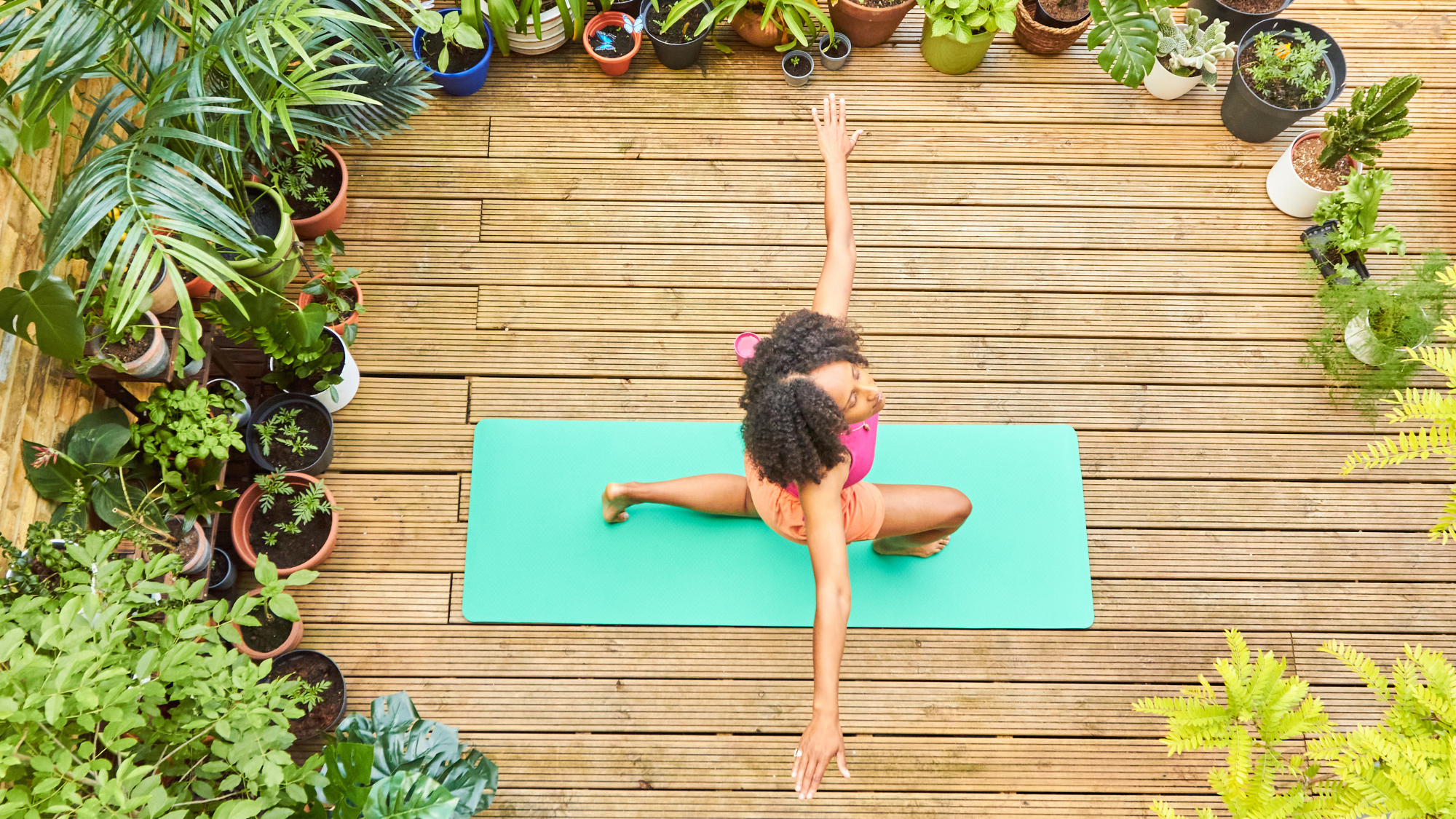
If you've read our guide to breathwork training, you'll know that breathwork can work wonders on your nervous system - as can meditation (Dharana) or mindfulness. Le'Nise explains that these can help the mind shift attention away from the physical body and the pain it is feeling, instead focusing on the breath. Struggling to sleep? Meditation for sleep might be the answer.
It might not be for everyone - every body is unique, after all, and will respond differently - but it might be worth a try if period pain is seriously affecting your day-to-day quality of life.
Yoga for period pain: 4 flows to try for each stage
In Le’Nise’s book You Can Have A Better Period, she explains that our periods should be seen as our fifth vital sign of health and that pain and discomfort is a sign that something is up. There are many different reasons that a period can be painful, from polycystic ovarian syndrome, fibroids or endometriosis (do see a doctor, if you're worried you may be affected).
Still not convinced yoga for period pain is for you? We all take time out for ourselves each day for our mental wellbeing - why not give back in the same way to your physical body, too?
Watch Le’Nise practice poses for each phase of the cycle or read below. Don't miss our guides to the types of yoga and yoga classes, while you're here.
Menstrual Phase
Baddha Konasana / Cobbler’s Pose
"This pose helps open up the pelvis to support healthy blood flow around the uterus, supports the hips and creates lightness. Baddha konasana can be really helpful for painful periods, especially for those with endometriosis and adenomyosis, where the instinct may be to curl up in a ball and remain stationary as a way of reducing the pain."
Malasana / Yogi’s Squat
This is another pelvic and hip opener that can relieve the heaviness that many of us may feel on day 1 or 2 of our periods. While doing the pose, it’s important to lift and squeeze the pelvic floor to connect with the abdominal muscles. This will help keep the chest and head lifted and open the hips even further.
Follicular Phase
Vrkasana / Tree Pose
This pose combines strength, balance, and focus, asking you to both lift from the crown of the head, whilst grounding down through your standing foot. To increase your focus, open up your arms to the side and sway from right to left, visualising the gentle movements of a tree in your mind’s eye.
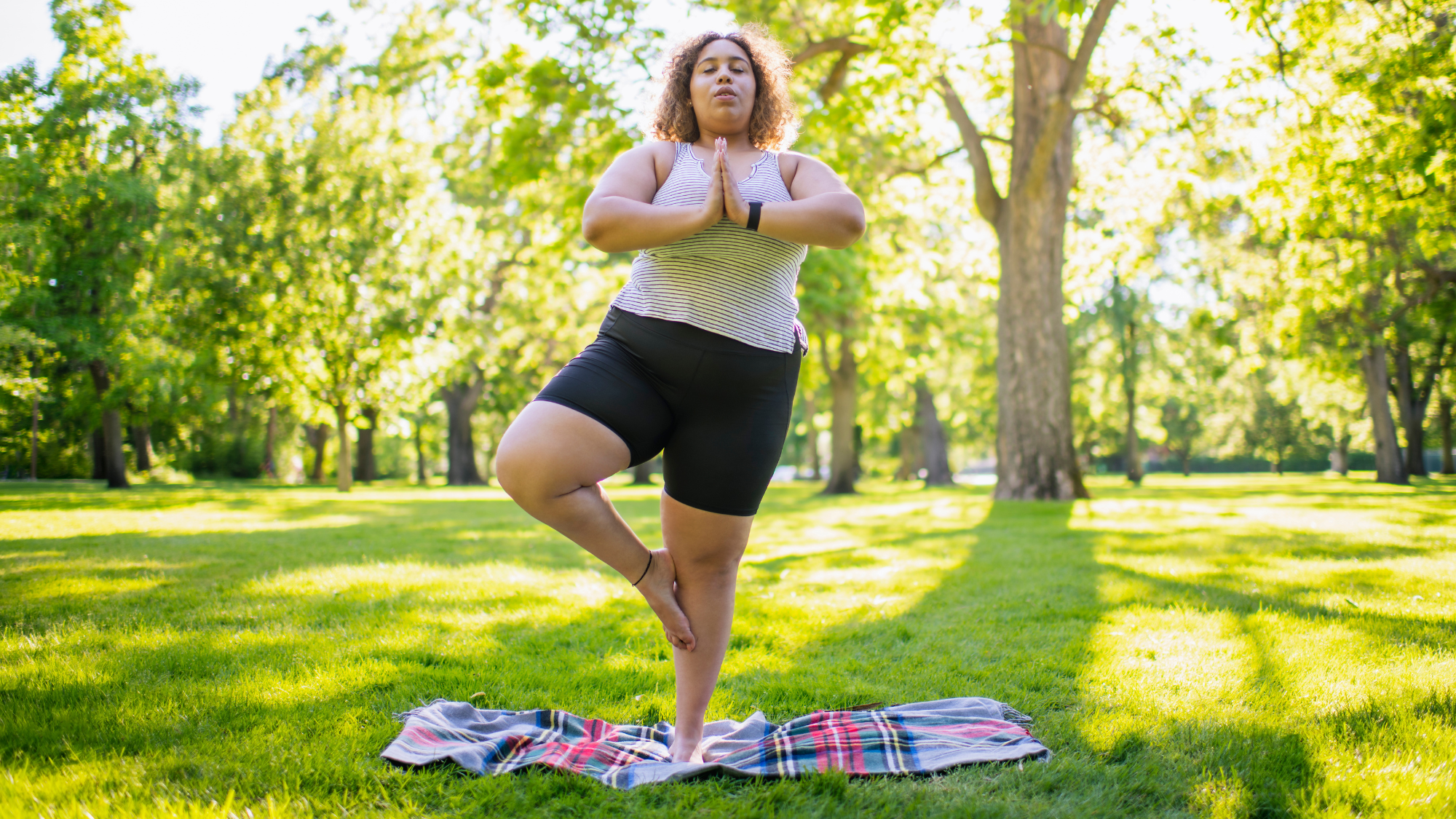
Virabhadrasana II / Warrior II
Warrior 2 pose asks us to tap into our inner and outer strength to hold the bend in our front knee and ground down into the edge of our back foot. Our outstretched arms increase the strength focus of this pose. Open your chest and roll your shoulders back, imagining you’re holding a pencil in between your shoulder blades.
Ovulatory Phase
Utkata Konasana / Goddess Pose
This is one of my favourite poses to practise and to teach. Goddess pose asks us to step into our power, opening the pelvis and hips, while bending our knees and grounding into all four corners of our feet. Once you feel steady, you can move your arms overhead, clasping your hands and releasing your index fingers. This is called Kali mudra, known for helping us channel energy from our pelvis through the top of our heads and for cultivating strength and courage.
Virabhadrasana III / Warrior 3
This pose combines balance and strength, asking us to ground into our standing foot and lift our raised leg as far backward as feels good. You might start by keeping the toe of the raised foot on the ground, gradually lifting to a place that’s available to you. There are many options for the arms: prayer hands in front of the chest, airplane arms to the back or sides or outstretched in front. To increase your stability, focus your gaze on a point that isn’t moving and hug everything into your centre. Hold the pose for ten breaths on the right and left side.
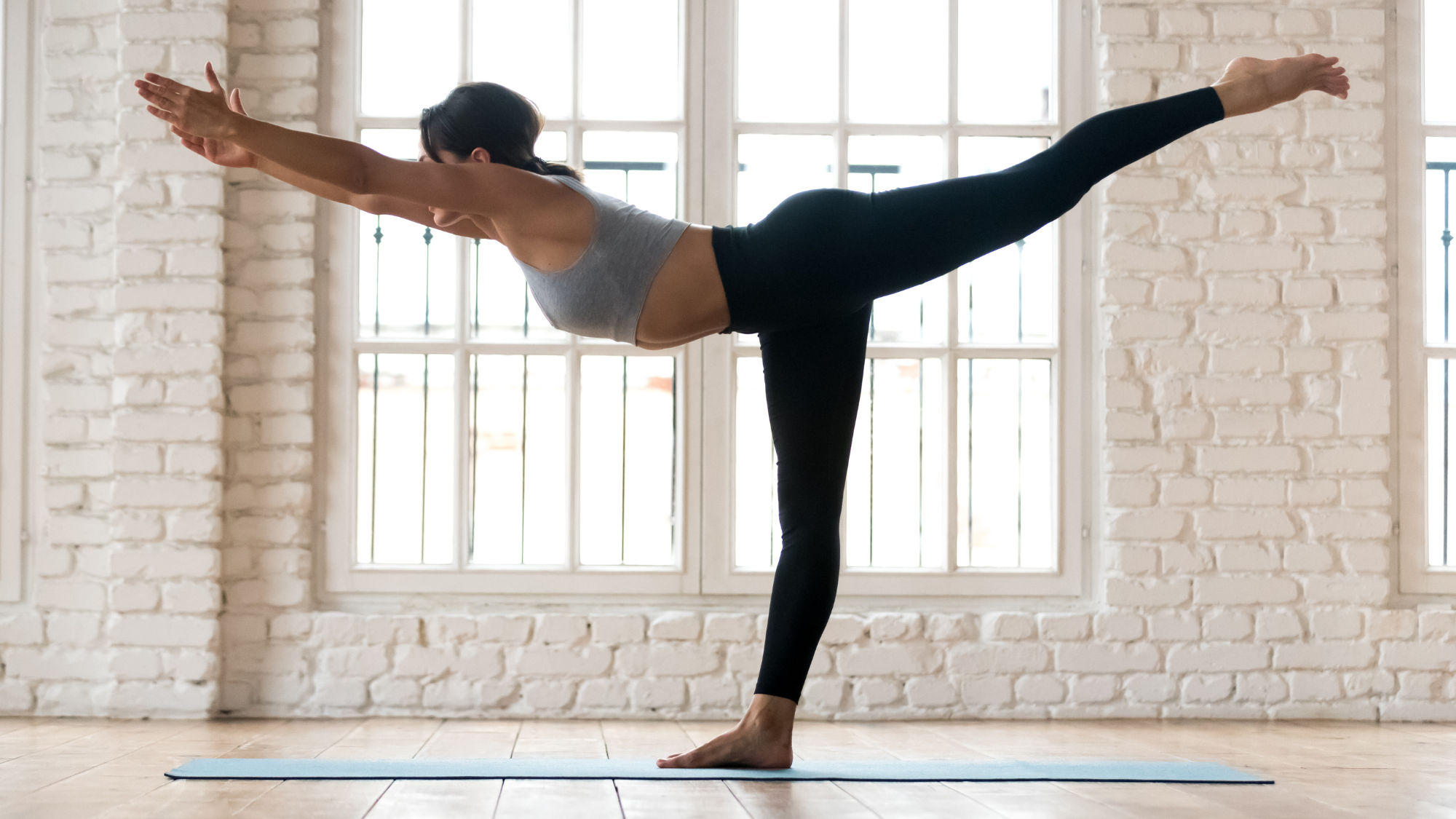
Luteal Phase
Shavasana / Corpse Pose
Shavasana may be one of the most challenging poses because it asks us to embrace stillness and focus on our breath. In shavasana, close your eyes, take up space, spreading your arms and legs out wide and bring your attention to the space in between your eyes to help focus the mind. If you find your attention wandering, know that this is normal. Acknowledge the thoughts that are coming in and let them drift away, bringing your focus back to your breath. If possible, stay in shavasana for a few minutes or longer, allowing yourself this time to just be.
Uttana Shishosana / Puppy Pose
Puppy pose is a lovely alternative to child’s pose that helps open up the shoulders and chest. With your arms stretched out in front of you, you have the option of keeping your head lifted to deepen the stretch in your chest or you can place your forehead onto the ground. Slow down and connect with your breath. You may stay in this pose for a minute or longer and then shift back to child’s pose.
"I tried yoga for period pain - here's what I thought"
I'm Dionne, 24, and I'm a trainee writer at Marie Claire UK. I've experienced period pain for as long as I can remember so turned to yoga to see if it would help. Here's how I got on.
"Without exaggerating too much, reading Le’Nise’s book and the flows, felt life-changing to me. As a PCOS sufferer, I have had painful periods for as long as I can remember."
"For me, I believe understanding my cycle more and what I need to do at each stage really helped me. I found myself thinking, why don’t they teach us this more at school? An A* in Biology but no real understanding of how hormones affect us all."
"Honestly, I’m not a big gym-goer and I don’t practice yoga as much as I should (practice what you preach, I know). But I will preach this forever, as since reading Le'Nise's book and trying the period for yoga flows, I had my first ever pain-free period in my life *screams*."
"Disclaimer here, I read the book and tried the yoga around the same time I tried acupuncture, so that could have impacted my cramps, too."
"Knowing I have a tool there to relieve any pain if it comes back makes it worthwhile for me. Even if it doesn't completely take the pain away, I feel relaxed, stronger, and like I've ticked something off my self-care list, too."
Dionne Brighton is a writer at Marie Claire UK, specialising in all things shopping, beauty and fashion. Born and raised in North London, she studied Literature at the University of East Anglia before taking the leap into journalism. These days, you can find her testing out the latest TikTok beauty trends or finding out what the next full Moon means.
-
 A day in the life of Nicola Orme, the Queens of Archive co-founder behind the fashion set's favourite vintage-inspired dresses
A day in the life of Nicola Orme, the Queens of Archive co-founder behind the fashion set's favourite vintage-inspired dressesEverything she gets up to in her 9-5
By Sofia Piza
-
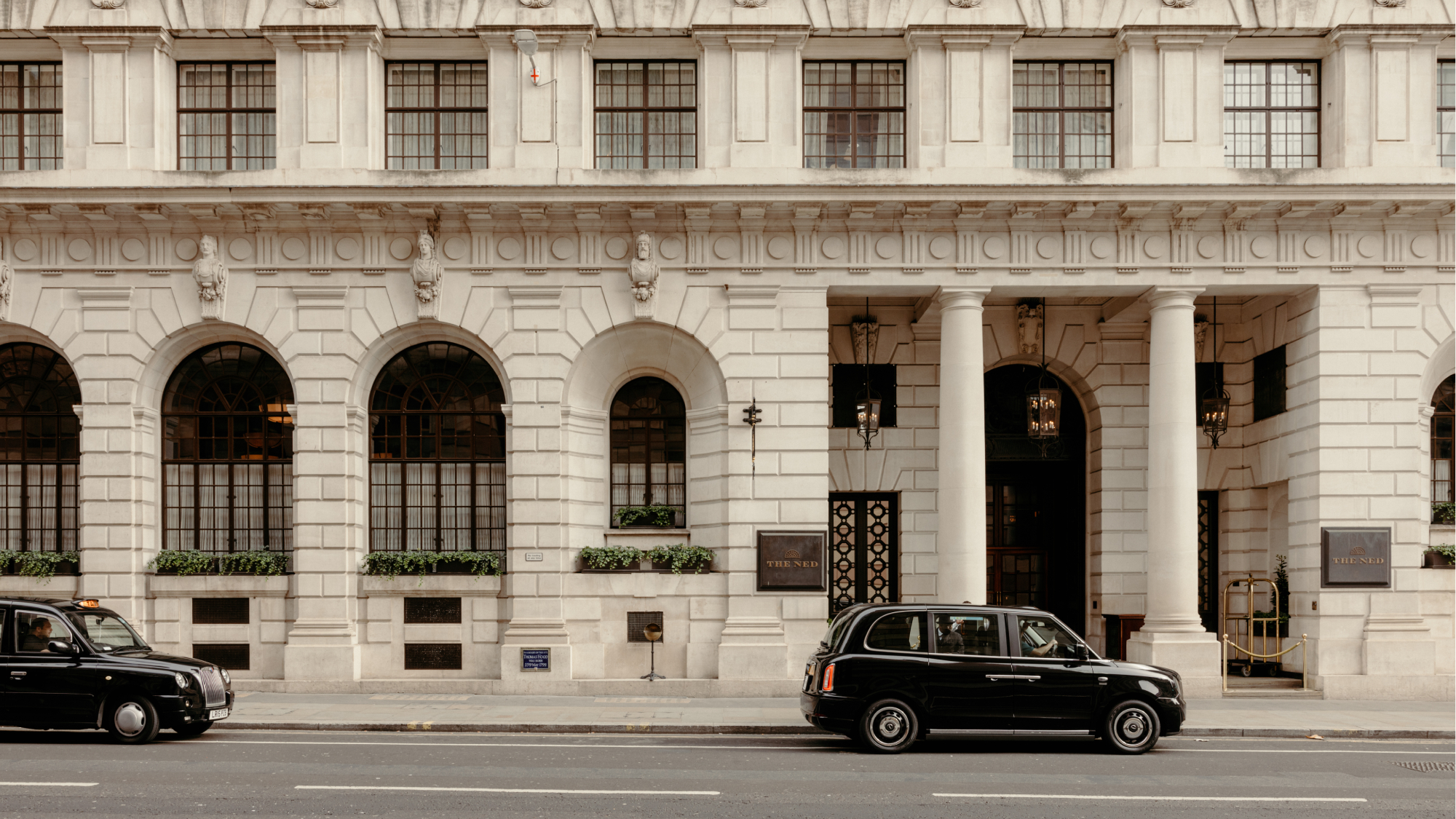 Easy Escapes: The Ned offers a decadent retreat in the heart of London
Easy Escapes: The Ned offers a decadent retreat in the heart of LondonThe Ned eclipses other London hotels with its sleek spa, extensive dining options and party atmosphere
By Lauren Hughes
-
 Isamaya Ffrench on disrupting the beauty industry and her desert island make-up bag
Isamaya Ffrench on disrupting the beauty industry and her desert island make-up bagFashion's favourite make-up artist discusses her life in expression
By Nessa Humayun